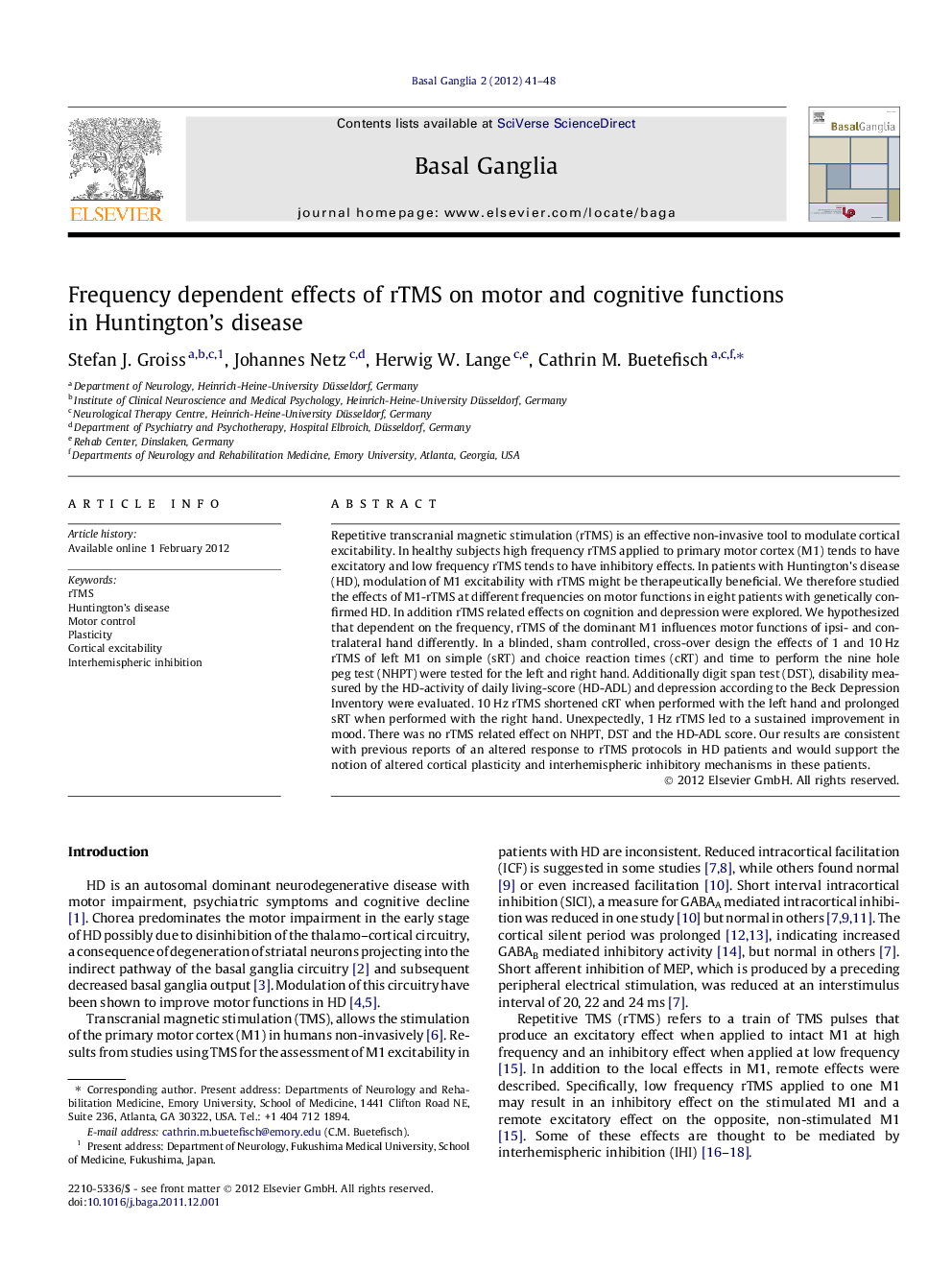| کد مقاله | کد نشریه | سال انتشار | مقاله انگلیسی | نسخه تمام متن |
|---|---|---|---|---|
| 3036315 | 1184366 | 2012 | 8 صفحه PDF | دانلود رایگان |

Repetitive transcranial magnetic stimulation (rTMS) is an effective non-invasive tool to modulate cortical excitability. In healthy subjects high frequency rTMS applied to primary motor cortex (M1) tends to have excitatory and low frequency rTMS tends to have inhibitory effects. In patients with Huntington’s disease (HD), modulation of M1 excitability with rTMS might be therapeutically beneficial. We therefore studied the effects of M1-rTMS at different frequencies on motor functions in eight patients with genetically confirmed HD. In addition rTMS related effects on cognition and depression were explored. We hypothesized that dependent on the frequency, rTMS of the dominant M1 influences motor functions of ipsi- and contralateral hand differently. In a blinded, sham controlled, cross-over design the effects of 1 and 10 Hz rTMS of left M1 on simple (sRT) and choice reaction times (cRT) and time to perform the nine hole peg test (NHPT) were tested for the left and right hand. Additionally digit span test (DST), disability measured by the HD-activity of daily living-score (HD-ADL) and depression according to the Beck Depression Inventory were evaluated. 10 Hz rTMS shortened cRT when performed with the left hand and prolonged sRT when performed with the right hand. Unexpectedly, 1 Hz rTMS led to a sustained improvement in mood. There was no rTMS related effect on NHPT, DST and the HD-ADL score. Our results are consistent with previous reports of an altered response to rTMS protocols in HD patients and would support the notion of altered cortical plasticity and interhemispheric inhibitory mechanisms in these patients.
► Repetitive transcranial magnetic stimulation (rTMS) effectively modulates behavior.
► We tested rTMS of motor cortex in patients with Huntington disease (HD).
► 10 Hz rTMS differentially influenced ipsi- and contralateral reaction times in HD.
► 1 Hz rTMS improved mood in HD.
► The results support that cortical plasticity is altered bidirectionally in HD.
Journal: Basal Ganglia - Volume 2, Issue 1, March 2012, Pages 41–48